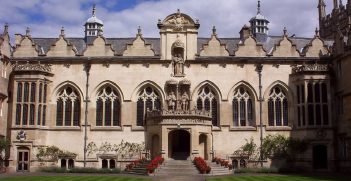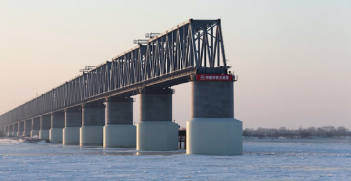Morrison Blocks Chinese Acquisition of Historic Kidman Cattle Empire

Treasurer Scott Morrison has blocked Chinese attempts to purchase the vast Kidman empire – which amounts to 1.3 percent of Australia’s total land area – saying it would be contrary to the national interest for it to go to a foreign buyer in its current form.
Morrison said his decision followed the recommendation from the Foreign Investment Review Board.
The Chinese investment firm Genius Link Asset Management (GLAM) has been in a bidding war with Shanghai Pengxin for the Kidman string of stations, with a price reportedly of around $350 million.
Kidman and Co Limited is Australia’s largest private land owner. Its holdings make up 2.5 percent of Australian agricultural land. There are 10 stations, located in South Australia, Western Australia, the Northern Territory and Queensland. The Kidman land totals more than 101,000 square kilometres, and runs a long term average herd of 185,000 cattle; it is significantly bigger than any other rural landholding.
Half of its Anna Creek station – the largest single property in Australia – is in the Woomera Prohibited Area (WPA) in South Australia. Morrison said the WPA weapons testing range ‘makes a unique and sensitive contribution to Australia’s national defence and it is not unusual for governments to restrict access to sensitive areas on national security grounds’.
He said the ban on foreign acquisition in its current form was based on the size and significance of the total holding as well as the national security issues around access to the WPA.
But his reference to ruling out acquisition of the empire ‘in its current form’ indicates a different attitude could be taken if the holdings were broken up.
Morrison said that after his decision was communicated, all bidders seeking to buy S. Kidman and Co withdrew their FIRB applications prior to his final order being formalised. It was now up to the sellers to consider how they wished to proceed with offering the properties for sale.
He would consider any alternate proposal or set of proposals ‘on its merits, consistent with my obligation to ensure that any such sale is on terms that are not contrary to the national interest’.
Morrison stressed that Australia welcomed foreign investment that was not against the national interest.
Foreign investment applications are examined against a national interest test which takes into account the impact of the proposal on the Australian economy and community; national security; consistency with other government policies including tax; competition; and the character of the investor.
Sir Sidney Kidman, who died in 1935, built a network of connecting stations, enabling him to grow cattle in the north and then move them down the line of properties to be sold in the south.
The Morrison decision comes as the lease of the Port of Darwin to Chinese interests has become an issue of domestic debate as well as causing some friction with the United States. American officials were annoyed they were not forewarned, and this week President Barack Obama reportedly said to Malcolm Turnbull that the US would like to be given a heads up on such matters.
Morrison told reporters the lease of the Darwin port did not go to the FIRB – it was a decision of the Northern Territory government, not the Australian government.
Secretary of the Defence Department Dennis Richardson told The Australian the port’s lease to the Landbridge group for 99 years was judged by Defence and ASIO to pose no security problems. Opposition leader Bill Shorten has asked for Labor to be briefed on the leasing and this will happen next week.
Adjunct Professor Michelle Grattan AO is a Professorial Fellow at Canberra University. This article was originally published in The Conversation on 19 November 2015. It is republished with permission.





